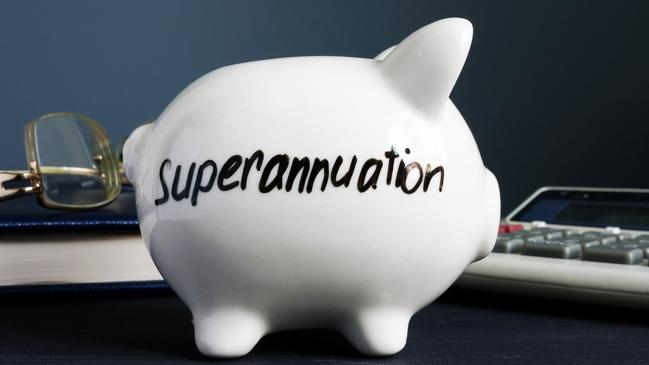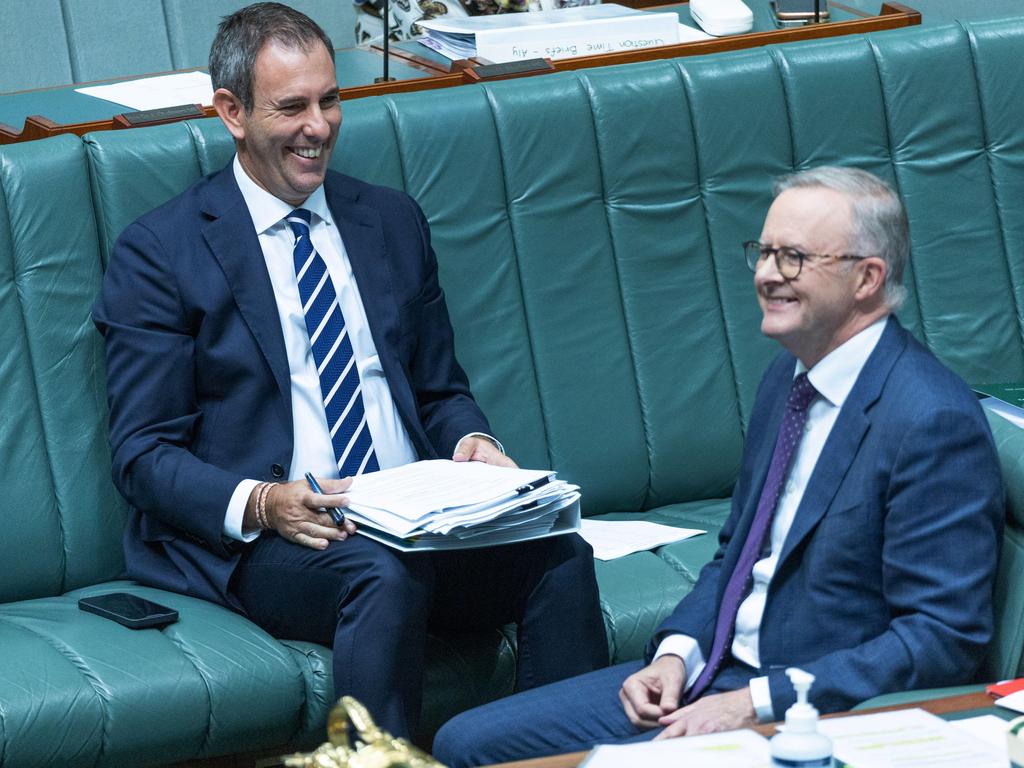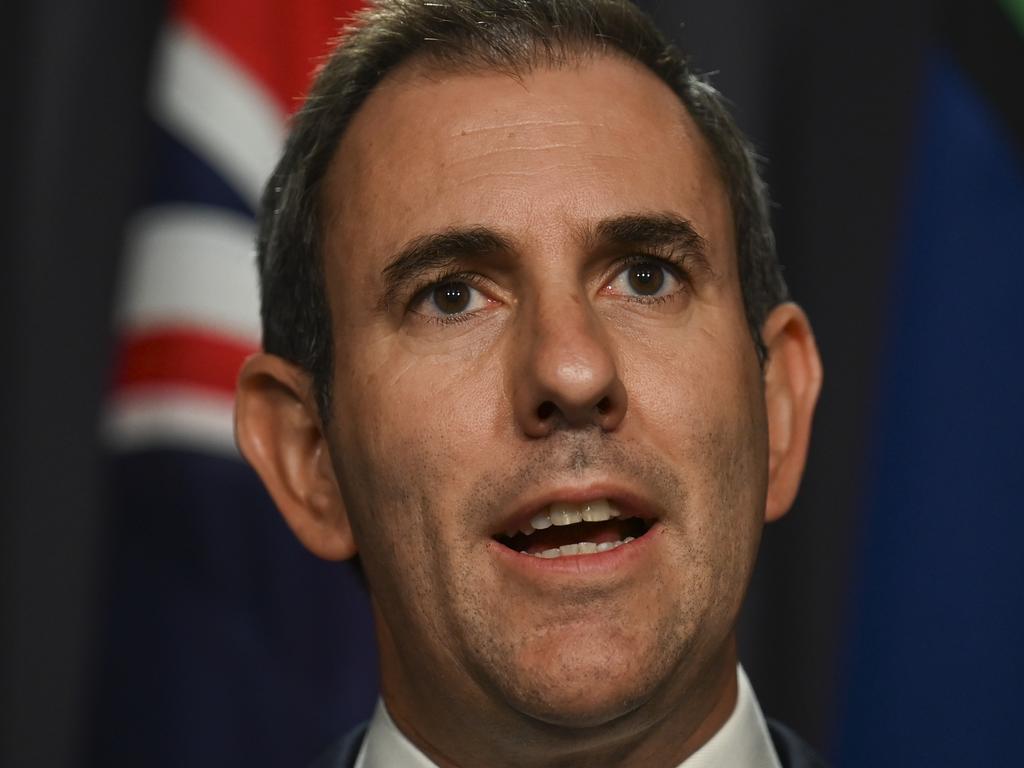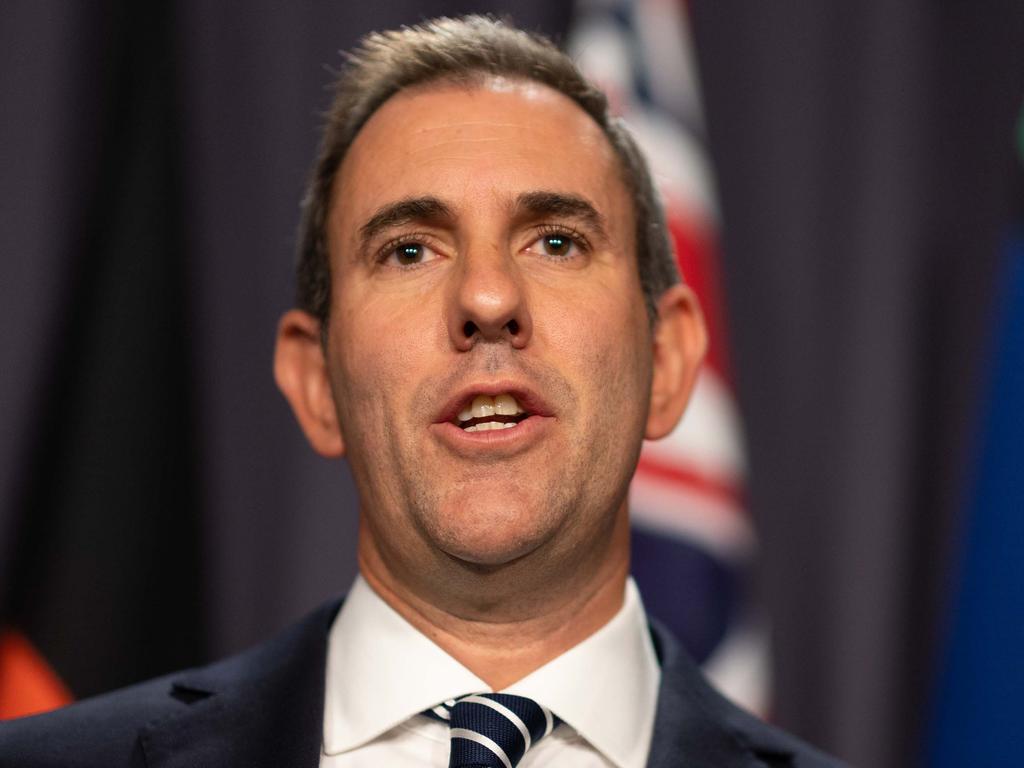
Treasury estimates so-called “tax expenditures”, that is benefits or incentives delivered through the tax system, are worth more than $200bn a year, equivalent to 8 per cent of the entire economy.
For a cash-strapped Labor, which looks increasingly comfortable with bigger government, those concessions are a sitting duck in the name of budget repair.
At The Australian-Melbourne Institute economic and social outlook conference in November, Jim Chalmers vowed to target the cost-effectiveness of tax concessions.
Treasury says the top two costs are for the family home’s exemption from capital gains tax ($34bn) and the pension asset test ($29bn).
Right now, the Treasurer wants to tighten up the $52.6bn a year in superannuation tax breaks.
There are quite a few of them, including lower tax rates on earnings in super funds, concessions for employer and personal contributions, deductibility of insurance premiums and capital gains discounts for funds.
Chalmers says by 2050 we’ll “spend” more on super concessions than the Age Pension.
“I’m not convinced that’s a sustainable way to get to our destination: good retirement incomes for more Australians, now and into the future,” he said on Monday.
But, as Treasury cautioned in the budget papers, “care needs to be taken when comparing tax expenditures with direct expenditures as they may measure different things”.
Plus, removing a tax break doesn’t mean Canberra gets an equivalent boost to revenue.
Officials calculate tax expenditures by an approach known as “revenue forgone”, which involves estimating the difference in revenue between the actual and a benchmark tax treatment.
The otherworldly part is the method assumes no change in taxpayer behaviour. Treasury cautions these estimates do not indicate the revenue gain to the budget if a specific tax expenditure was abolished by a government “as there may be significant changes in taxpayer behaviour”.
No kidding. Tax planning is a national obsession; we’re top of the league table on this stuff.
Shaking down 11,000 people with super balances in excess of $5m may be enticing, given the funds are happy to go along with it.
But that won’t bring in a lot of revenue, which will mean more fiddling with a complex system.
The core issue for super concessions is lifetime tax-free status on earnings, the forever gift Peter Costello gave retirees in 2006.
They amount to $26.4bn a year, or about 1 per cent of GDP. Across the next 40 years, Treasury estimates their real cost will double.
Concessions on employer and personal super contributions cost $23.2bn a year, but as a proportion of the economy are not expected to rise, according to the Intergenerational Report.
The budget is in chronic deficit, with an annual excess of spending over taxing of $40bn-$50bn in today’s dollars over the coming decade. This gap needs to be closed, with Treasury secretary Steven Kennedy arguing for fiscal consolidation every time he makes a public appearance.
“Governments are going to have to make hard decisions about how to either reduce that spending as a proportion of income or raise taxes if they want to run balanced budgets over time, which I think would be a good thing to do over time,” Kennedy told Senate estimates a week ago.
In coming days, the Treasurer will release an enhanced analysis of who wins (and loses) from this redistribution, and its total cost.
As Treasury states in a guide to these concessions, “taxes paid by individuals and businesses not benefiting from the tax expenditure need to be higher to raise the same total revenue”.
You won’t be surprised by the hard facts or the onrush of hot-take class-war tropes.
But you may wonder why you didn’t hear about any of this merry fiddling with your precious super before the last election.








Tax breaks are slippery beasts. In the national ledger, they offer different strokes for different folks.